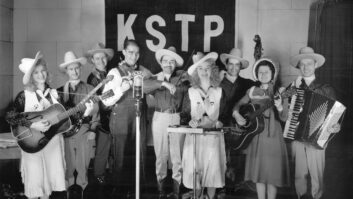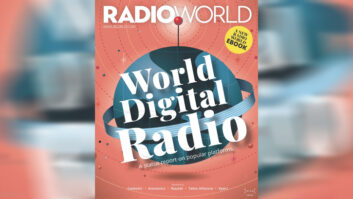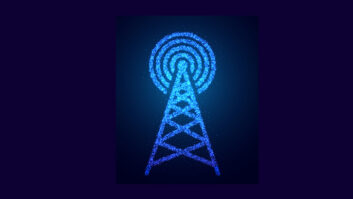Radio station fees would increase around 13% across the board in fiscal 2022, according to the proposed fee schedule just released by the Federal Communications Commission.
The National Association of Broadcasters called the planned hike “staggering.”
Fees have been a bone of contention for broadcasters, who have been arguing for years that tech companies affected by FCC regulations should be paying their fair share and that the commission’s methodology of fee-setting needs to be revamped. As recently as April, the NAB warned that stations could be seeing big hikes.
The FCC is required to collect $381.9 million in regulatory fees for 2022 under the appropriations legislation approved by Congress and the president. The commission spent most of the first eight pages of this week’s announcement explaining and justifying its process for calculating fees.
The proposed radio fees range from $690 for an AM Class C in the smallest markets to $23,585 for big FMs in major cities. An FM Class B1 station in a market of half a million people will see its fee increase to $4,090.
Below is a chart of the proposed radio fees for fiscal 2022, followed by the chart of actual fees in 2021:
PROPOSED for 2022:
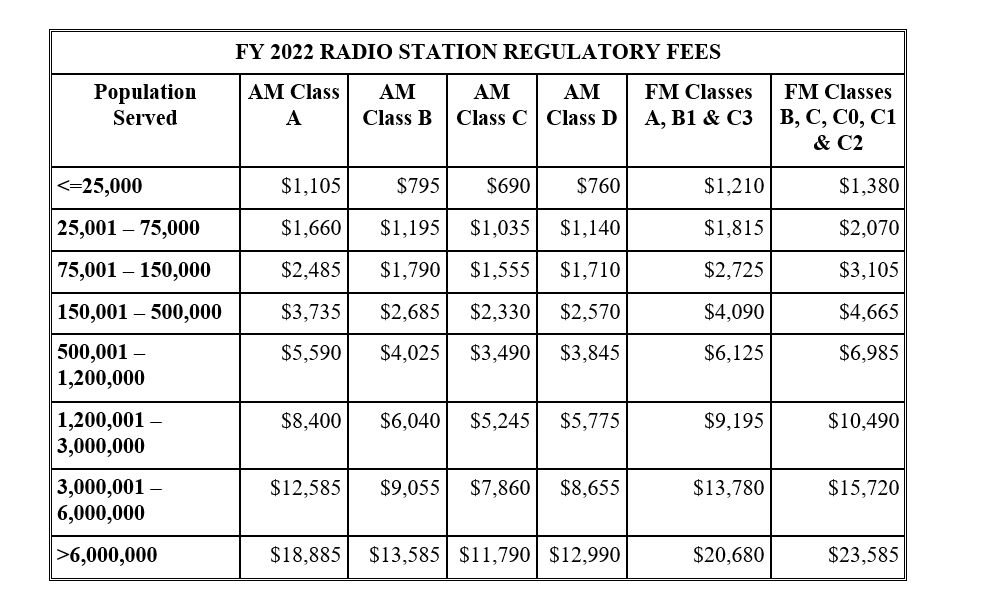
ACTUAL in 2021:
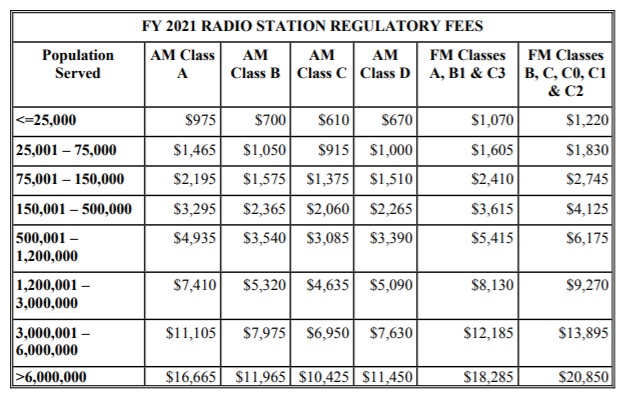
The FM radio construction permit fee would be $1,210, up from $1,070 last year, while AM CPs would be $690, up from $610.
“Unfortunately, the commission continues to unlawfully require broadcasters to subsidize the Commission’s broadband activities,” the NAB said in a statement.
“For these local stations that are still recovering from the pandemic and face unique economic challenges in today’s media landscape, such an unjustified increase is devastating and risks undermining the unique locally-focused service that our communities rely upon. NAB stands ready and willing to work with the commission to ensure a fair and lawful payment regime.”
One issue that the commission is considering is whether to increase the cut-off point below which small broadcasters would not have to pay; this is called the annual de minimis threshold, currently set at $1,000. The law allows the FCC to exempt a party from paying regulatory fees if the commission finds that the cost of collecting would exceed the amount collected.
The NAB wants it to increase this threshold, and the FCC now is asking for public input, including on how costs are calculated. It noted that administrative debt collection involves many steps, “including data compilation, preparation and validation; invoicing; debt transfer for third party collection; responding to debtor questions and disputes; and processing payments.”
The FCC is also asking for comment on how its fee proposals “may promote or inhibit advances in diversity, equity, inclusion and accessibility, as well the scope of the commission’s relevant legal authority,” although it noted that D&E considerations aren’t allowable reasons for the commission to shift fees from one party of payors to another.
File comments in the FCC’s online system. In the Proceeding field, refer to MD Docket No. 22-223. Comments are due July 5, and replies July 18.

